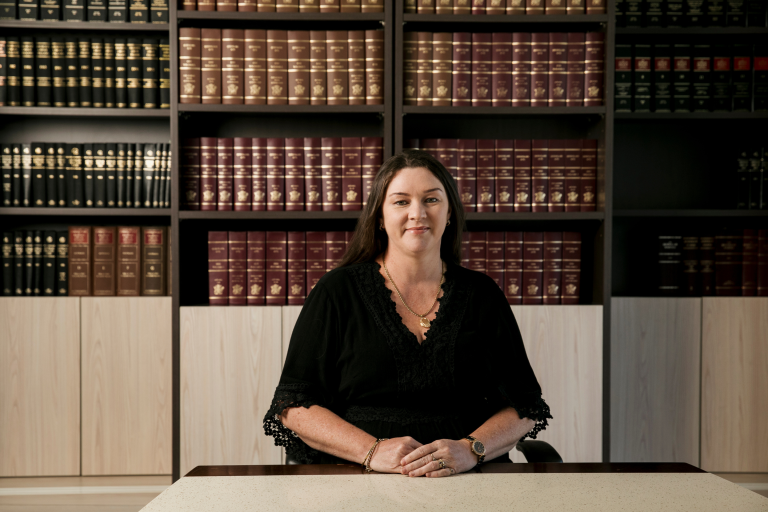Disclaimer: This article provides general information explaining complex legal concepts, please contact Butler McDermott Lawyers for legal advice.
A loved one has passed away and everyone is talking about their last will and testament. You’ve just found out that you are barely mentioned in the will, even worse someone has told you that you are not in the will at all. You may feel inadequately provided for and what you are receiving is not what you expected.
It feels like you have been left out, hurt, and maybe even betrayed for not being given what you were promised. So, is there anything you can do? What does it mean to contest a will?
Let’s look at Family Provision Applications and how Butler McDermott, one of the leading Wills & Estates lawyers on the Sunshine Coast, can help you get what you deserve.
What is a Family Provision Application?
In accordance with section 41 of the Succession Act 1981 (Qld) you can apply to the Court to make an order for further provision from the estate of your family member where the will fails to make adequate provision for you.
Who can file a Family Provision Application?
Only an eligible person can make a Family Provision Application. Those who can apply are:
- A spouse (including married partner, de facto partner and civil partner)
- A child (including biological children, stepchildren and adopted children)
- A dependent, in certain circumstances.
What are the time limitations for bringing a Family Provision Application?
Part 4 of the Succession Act outlines the timeframes for you to bring forward a family provision application. Firstly, you will have to notify the legal personal representative of your loved one’s estate about your intention to bring an application within six months of the date of their death. After that, your lawyers must file and serve your family provision application within nine months from the date of your family member’s death.
What considerations do the courts make in relation to bringing a Family Provision Application?
When examining your application, the Court will determine whether there has been adequate provision made for your proper maintenance and support in the will. If it is found that adequate provision has not been made, the Court will make several considerations before ordering provision to be made for you in the will.
These considerations will include:
- The size of the estate.
- Your circumstances, such as your age, health and financial status.
- The strength of any competing claims.
- If you have engaged in any disentitling conduct.
- The nature of the relationship between you and your deceased family member.
There may be other factors that the Court may find relevant to your case, so be sure to contact your caring lawyers to get an idea of how your application may be decided.
Should you contest a will?
If you are a family member not receiving adequate provision in a will, you should contest a will to have the situation corrected. By bringing a family provision application, you are claiming more from the estate, whether that be a specific asset or property or an adjustment to the portion of the estate you are to be given.
Soon after the reading of the will, thinking about contesting the will can be quite emotional. It is best to talk to your lawyers at Butler McDermott as to whether you should contest a will. We can help look at the circumstances of your case and discuss the likely outcome of your claim.
Can you contest a will after probate?
In short, yes, it is possible to contest a will if probate has been granted.
However, it is important to make your application before the assets and property have been distributed. It will be difficult to get funds back or track them down if you do not apply in time.
What if there is no will?
When there is no will, your loved one is deemed to have died intestate. Through a grant of letters of administration, a person is appointed administrator of the estate. The administrator must then distribute the estate following the rules for intestacy.
These rules involve how the estate should be divided depending on the scenario.

Case Study: Al and his children
Timmy was a widower. When he died, he left behind two properties, superannuation funds, cash in his bank account and a few sundry assets.
From his first marriage, Timmy had two children. From his second marriage he had a 17-year-old child, Christian, and two stepchildren.
Timmy named 17-year-old Christian as sole beneficiary of the will. The children of the first marriage feel terribly wounded by this. While it’s not necessarily about the money, it feels like that their dad “moved on to a new family,” making them feel left out and pushed aside. They are trying to decide what to do going forward.
Who can contest this will? Do the stepchildren have rights?
Any of the children not named in the will, including the stepchildren, can contest the will. They are all classified as eligible persons to bring a family provision application under the Succession Act. Even though the children were not dependents at the time of death, they are still children of the deceased and are allowed to bring a claim.
Who has the best chances of success?
The children of the first marriage will need to argue that adequate provision has not been made by Timmy’s estate for their proper maintenance and support. The chances of success for their application to contest the will depends on a variety of factors, as discussed in the sections above.
However, those children who are the most financially insecure and in need of further provision from the estate will have the best prospects of success.
What can the 17-year-old do to fight for his father’s wishes?
If a will is being contested, it is the responsibility of the executor of the will to defend the will. In this case, the executor of the will is not a beneficiary of the will.
Unfortunately, because Christian is a beneficiary and not an executor, he cannot defend the will himself. However, he may be able to resolve the dispute by way of negotiation or mediation.
Where to go from here
If you are looking to make a family provision application or to defend an estate that is being contested, Butler McDermott on the Sunshine Coast is extensively experienced in estate litigation and is ready to help you out at a moment’s notice.




















